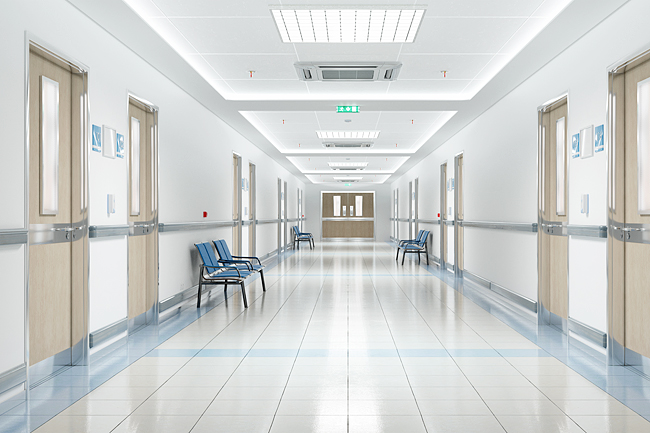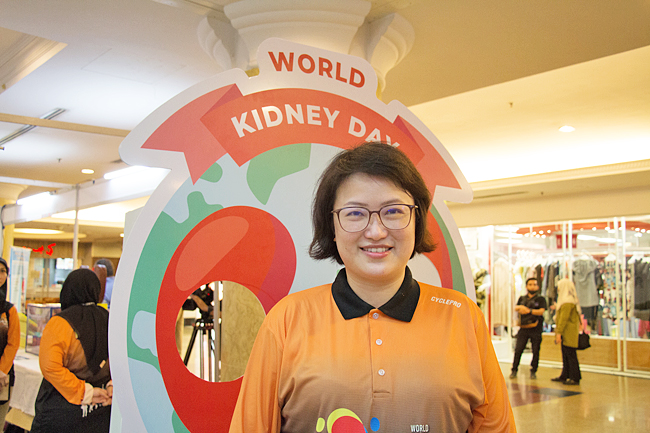Chronic kidney disease (CKD) can be considered a ‘silent killer’ as it doesn’t always come with warning signs or symptoms. An individual can lose up to 90 per cent of the kidney function before experiencing any signs.
CKD is an irreversible condition characterised by the gradual decline of kidney function over an extended period, spanning months to years. Its nature necessitates patients to receive continuous care throughout their lives, as currently there is no known cure for the condition.
Having multiple functions, the kidneys remove waste products and extra fluid from the body, produce urine and regulates the body’s chemical balance, while also helping control blood pressure, creating red blood cells and keeping bones healthy.
Acting Associate Specialist of the Department of Renal Services at the Ministry of Health (MoH) Dr Lim Yee Yin, during a question and answer session, shared that the most common causes of kidney disease are diabetes and hypertension.
“There are also some medications that can damage the kidneys, like NSAIDs, a type of anti-inflammatory medication,” she added.


However, according to Dr Lim, sometimes being sick in general – like having a severe infection – can ultimately damage the kidneys and if left untreated, the infections can result in CKD in the future.
“More than 850 million people around the world, approximately 14 per cent of the world’s population have some form of kidney disease,” she said.
CKD becomes more common as an individual ages as it occurs in about 40 per cent of people aged 65 and older and is more common among women, Dr Lim added. She noted that these people are most at risk including people who do not have frequent checkup, or who have uncontrolled diabetes and uncontrolled blood pressure.
“Other risk factors include obesity and family history of CKD,” Dr Lim added, sharing tips and tricks to reduce the risk of CKD, which first and foremost is staying healthy.
“The sicker you are, the sicker your kidneys will be. So, follow up with your doctor, be sure to complete regular blood tests and avoid medications that can harm your kidneys.” Placing further emphasis on the importance of regular check-ups with doctors, Dr Lim said if an individual has diabetes or high blood pressure, it is important to seek a doctor’s advice to manage these conditions.
Common signs and symptoms, she remarked, are swollen ankles, fatigue, difficulty in concentrating, decreased appetite and foamy urine.
The symptoms can be detected through a blood test to measure the level of creatinine in the blood to estimate the overall kidney function and urine test to check if there is excess protein or blood.
“The best way to reduce risk is to learn more about your medical conditions and not live in denial if there is an issue.”
Dr Lim shared that this is an issue she often encounters as patients have a tendency to deny their conditions, subsequently avoiding follow-ups until years later when the condition has reached an advanced stage and complications have arisen.
Dr Lim stressed the importance of regular follow-ups with one’s healthcare provider, completing routine blood and urine tests, maintaining an overall good health through a balanced diet and regular exercise, as well as effectively managing diabetes and high blood pressure.
She said a CKD patients, kidneys are unable to adequately filter toxins from their blood, and as the disease progresses, certain dietary restrictions may be necessary, such as reducing salt, potassium, or fluid intake.
Dr Lim shared that depending on the stage of CKD, patients may also have limitations on the amount of protein they can consume, and in certain situations medication adjustments may be required to prevent further damage, while avoiding others.
Hence, a combination of lifestyle modifications and medical treatment is necessary, she said.
“Our 2022 Brunei Darussalam Dialysis and Transplant Registry show that at the end of 2022, we had 913 patients on kidney replacement therapy of which 737 were on haemodialysis, 127 on peritoneal dialysis and 49 with a transplant,” she added.
“Sadly, it is not feasible for every patient to receive a transplant and many will need to rely on dialysis. We (the MoH) aim to detect CKD before it progresses to that point.” – Khayr Zakariyya



















































